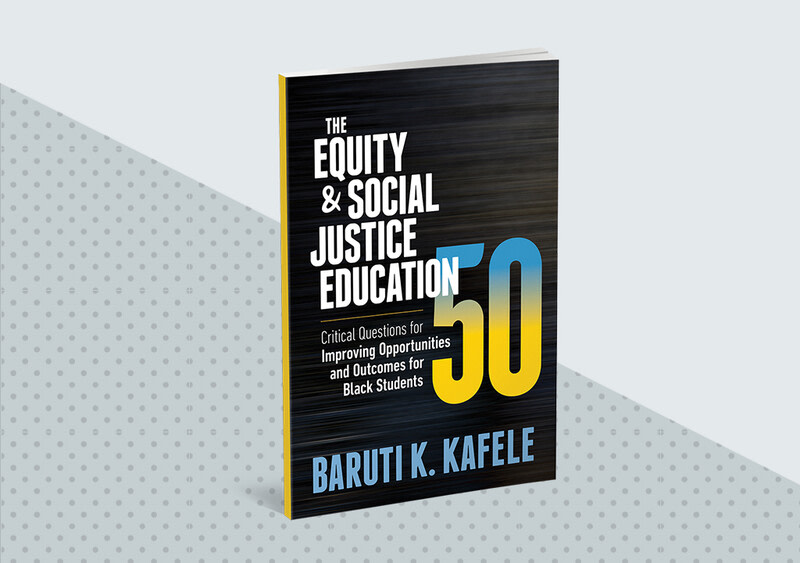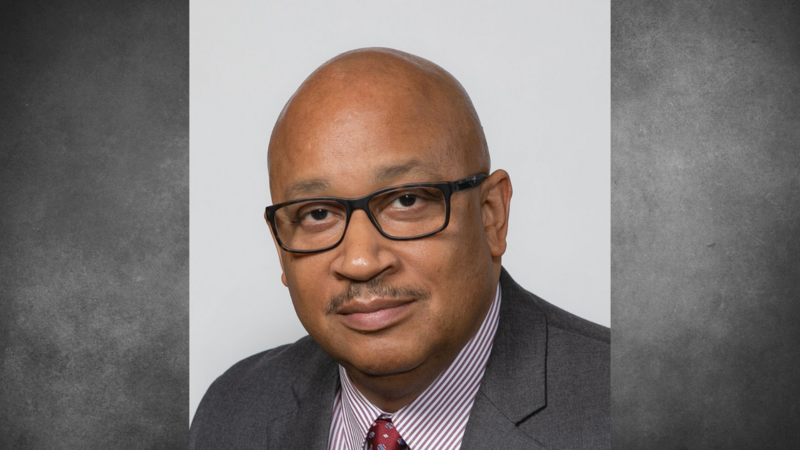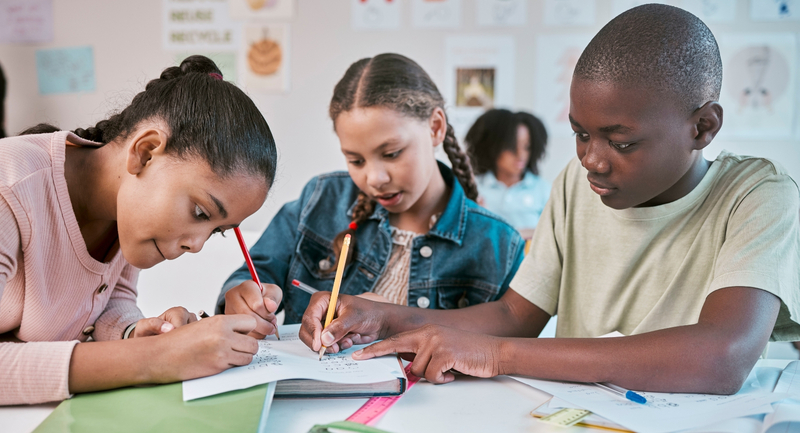When Baruti Kafele started teaching in the late 1980s, there wasn’t a name for what we now call “equity” education. He was just determined to advocate for his mostly Black students and honor their individual differences—practices he later homed in on as an influential school-turnaround principal in New Jersey.
These days, “equity” is a common buzzword in K-12 education, but often lacks depth and personal commitment in practice, Kafele, now a widely known speaker and author, said during an impassioned presentation at ASCD’s Annual Conference. Fittingly for a Sunday morning session, Kafele’s talk was frequently punctuated by shout-outs and affirmations from what he called the “Amen Corner” in the packed conference room.
Kafele defined equity as “meeting students where they are, as they are,” adding that the last part can be a particular challenge for teachers who have preset notions about what good students should be like—and what their own role is in serving students.
In this sense, he said it is critical for educators to go beyond “doing” or implementing equity—now routine practice in many schools—to “being equity.” Holding up a small mirror, Kafele explained that being equity requires constant self-reflection and internal examination of how one interacts with students and seeks to meet their learning and social needs—as they are.
Ultimately, he said, “equity is a reflection of an educator’s humanity toward the students he or she serves.”
Kafele stressed that being equity requires developing an “equity mindset,” which he defined in close detail:
An equity mindset teacher is a teacher who utilizes a variety of appropriate instructional strategies that consider the differing academic, social, and emotional needs of each of the learners in a student-centered, culturally responsive, culturally relevant, barrier-free “equity mindset classroom” where student individuality, student cultural identity, and student voice matter exponentially.
Kafele told the audience that it would take “30 hours” to dig into this definition adequately, but said it could be broken down into three essential components that he looks for when evaluating equity in a classroom or school.
1. Student individuality: Are students visible or invisible?
Many students, Kafele noted, are physically present in the classroom but don’t have presence because they don’t feel seen. Educators must ask themselves what they are doing to prove to individual students that they care about them and are committed to their development.
2. Student cultural identity: Is it accentuated or denied?
Students not only come from and face different realities—something that purported “colorblindness” fails to acknowledge—but they also need knowledge of their own background and the “shoulders on which they stand.” They need teachers who can “breathe life” and relevance into curriculum.
3. Student voice: Is it distinct or obscure?
Honoring student voice, Kafele said, means both valuing students’ perspectives, contributions, and communication styles and helping them find their own voice and sense of purpose. It also means helping them develop the courage to use their voices.
Having defined these potent elements of the equity mindset, Kafele lamented that he didn’t have “four more hours” to elaborate more on what marginalized students need from equity-minded educators today. “This was only my intro!” he said, to both laughter and expressions of wonder from the audience.
Note: To catch Baruti Kafele at the virtual ASCD Annual Conference in April 20–22, 2022, register here.
The Equity & Social Justice Education 50
These 50 questions from Baruti Kafele's latest book will help enhance teachers' understanding of race, systemic racism, and racial justice and guide them in developing strategies and lessons that speak to Black students in ways that truly support their achievement.










